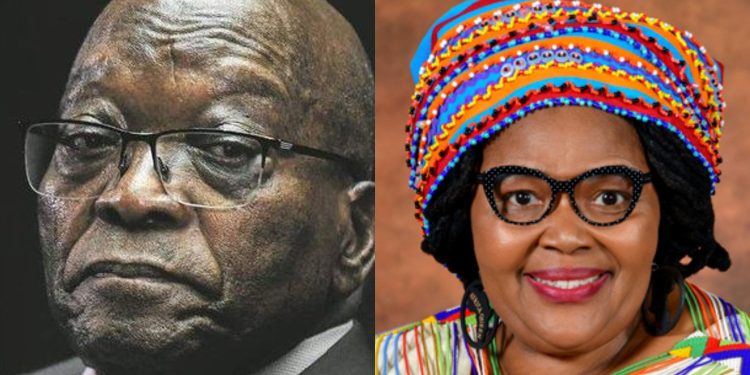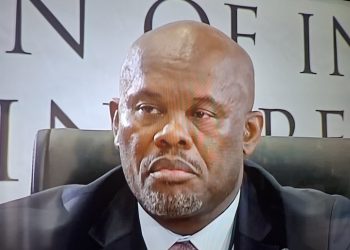The uMkhonto weSizwe (MK) Party has turned up the heat on Water and Sanitation Minister Pemmy Majodina, calling for her immediate resignation after it emerged that water board chairpersons were pocketing millions of rand for attending just a handful of meetings each year.
In a statement issued on Thursday, the MK Party described the revelations as “an outrageous abuse of public funds” and demanded a forensic investigation into what it termed “a racket of enrichment at the expense of thirsty communities.”
Parliamentary records revealed that board members collectively received nearly R50 million annually in stipends and allowances, despite holding relatively few engagements. Critics say the pattern reflects weak oversight by the department and a culture of waste that has deepened South Africa’s water crisis.
Among the most eye-catching figures were advocate Vusi Khuzwayo, chairperson of uMngeni-uThukela Water, who received R1.4 million for attending just 13 meetings, excluding travel and accommodation perks. Precious Sibiya, who chairs the Trans-Caledon Tunnel Authority (TCTA), was paid R1.2 million for 10 meetings.
“These golden payouts are an insult to South Africans who queue daily for water from tankers while infrastructure collapses,” MK Party spokesperson Nhlamulo Ndhlela said. “Minister Majodina cannot wash her hands of this scandal. She presided over a system that rewarded friends and loyalists instead of delivering clean water.”
The party further accused the minister of “deliberate negligence” and claimed the boards were being used as “cash cows for politically connected individuals.”
Minister Majodina’s office has yet to issue a detailed response but insiders in the department argue that the payments were guided by existing remuneration frameworks approved by National Treasury. However, governance experts say the amounts raise troubling questions about proportionality, accountability, and the minister’s role in approving such structures.
Civil society organisations have joined the outcry, urging government to prioritise infrastructure investment over administrative excess. The South African Water Caucus, a watchdog collective, warned that excessive board spending “robs citizens twice”—first through poor service delivery and second through misused taxpayer money.
The controversy comes at a time when many municipalities are buckling under water shortages, broken pipelines, and mounting debts to water boards. Analysts warn that unless urgent reforms are implemented, service delivery protests are likely to escalate.
The MK Party, which has sought to position itself as a watchdog against corruption and maladministration, vowed to take the matter to the Public Protector if Parliament fails to act. “This is not just about irregular payments—it’s about justice for millions without reliable water,” Ndhlela said.






















